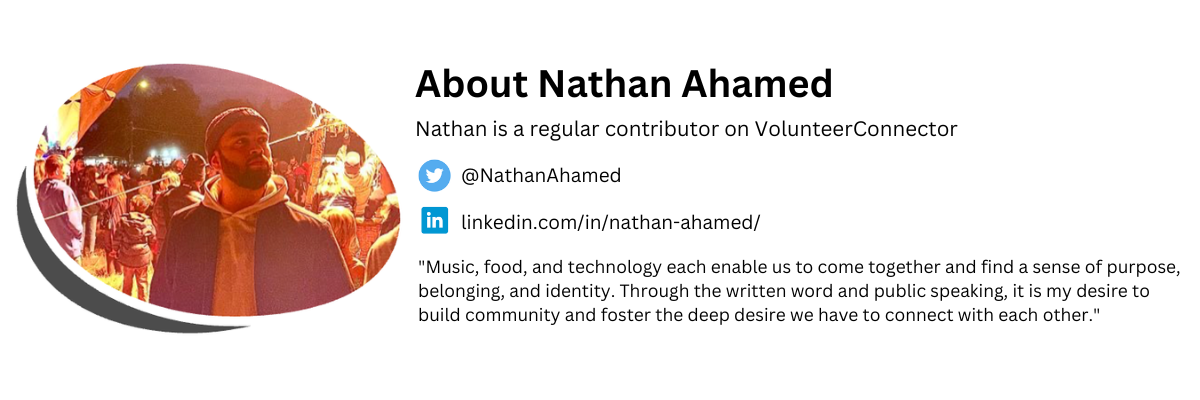Better The World By Bettering Yourself
 Is it possible to change the world? Some days it takes more convincing than others. Our world is a big place with a long list of needs. The task feels rather daunting. Yet, we can often quantify change through compounding small actions. If you want to change the world, challenge yourself to shrink your scope. Look to better yourself first, and by doing so, equip yourself to change the world around you. All it takes is one person to impact a community. If you want to start the journey of self-improvement, here are three intentional behaviors to engage in.
Is it possible to change the world? Some days it takes more convincing than others. Our world is a big place with a long list of needs. The task feels rather daunting. Yet, we can often quantify change through compounding small actions. If you want to change the world, challenge yourself to shrink your scope. Look to better yourself first, and by doing so, equip yourself to change the world around you. All it takes is one person to impact a community. If you want to start the journey of self-improvement, here are three intentional behaviors to engage in.
Practice gratitude
Practicing gratitude is a great starting point to self-improvement. Research has shown that practicing gratitude can improve emotional and mental health—even going so far as to have long-lasting positive effects on brain chemistry and behavior. There are two ways to make this a regular practice in your daily life.
- Journaling. Every day, write down a few things you’re grateful for. If you are someone who already journals, add this to your routine. Set a static number and challenge yourself to reflect on new things daily.
- Meditation. Set aside time each day and meditate on what you are grateful for. You can also take this a step further and say them out loud. Use sticky notes or a reminder on your phone to help make this a regular practice.
As a chef by trade and someone who enjoys good food, I remind myself to be grateful every time I open the fridge. It’s a simple practice that keeps me mindful that having food to eat and access to clean drinking water is a privilege. Practicing gratitude daily can increase your positive impact on those around you by increasing empathy and compassion for those in need.
Engage in selflessness
If you genuinely desire to see a change in the world around you, shifting your focus from inward to outward is vital. A National Library of Medicine study links selfless behavior patterns with happiness. While many other factors can weigh in and findings should not be considered definitive, their conclusions about relating selflessness to distinct happiness are fascinating. While selflessness is easier said than done, you can start by applying two simple practices in your everyday life.
- Random acts of kindness. There are opportunities to meet needs around us every day. These acts can be as simple as helping someone carry groceries, shovel the snow, or offer to babysit, housesit, or dog walk. This practice will train you to become aware of the needs in your community and city.
- Uplift others with words. An encouraging word to a friend, romantic partner, co-worker, or stranger can be a monumentally positive boost in their day. The more we learn about verbal encouragement, the more research shows the massive positive impact it can have on our lives.
While these two practices are theoretically simple, they might be new learned behaviors. Start off easy by practicing with trusted individuals you consider a safe space and slowly gain the confidence to make them commonplace in your everyday life.
Increase generosity
The third and final behaviour for self-improvement is generosity. While directly benefiting others, this practice has a significant positive impact on those who engage in it. One study out of UC Berkeley found that generosity activates the same reward pathways as food and sex. If you desire to be more generous, you can put generosity into action in two main ways.
- Give your money. People, communities, and organizations require money to exist. There’s no way around it. Some simple ways to engage in generosity with your money are to buy someone a coffee, donate to the food bank, or find an organization that serves in an area you are passionate about and contribute to them.
- Give your time. Time can be equally or more valuable than money. For some without means, it can be easier to give—but sometimes, it can also be scarcer. You can be generous with your time by visiting an elderly person, participating in a neighbourhood cleanup, or finding a local organization needing volunteers.
Generosity in both areas is a significant step to making the world around you a better place. In theory, any need can be met by one of these two things. If you want to start practicing generosity, consider what you can offer, research causes you are passionate about, and decide how to best give.
Be the change
The exciting thing about gratitude, selflessness, and generosity is that these three behaviors are wildly contagious. Others will notice what you are doing and the way it is changing how you go about life. The positivity from these three practices will be noticeable, tangible, and highly effective in enacting positive change, both within yourself and the world around you.
“We but mirror the world. All the tendencies present in the outer world are to be found in the world of our body. If we could change ourselves, the tendencies in the world would also change. As a man changes his own nature, so does the attitude of the world change toward him. This is the divine mystery supreme. A wonderful thing it is and the source of our happiness. We need not wait to see what others do.” – Mahatma Gandhi.

